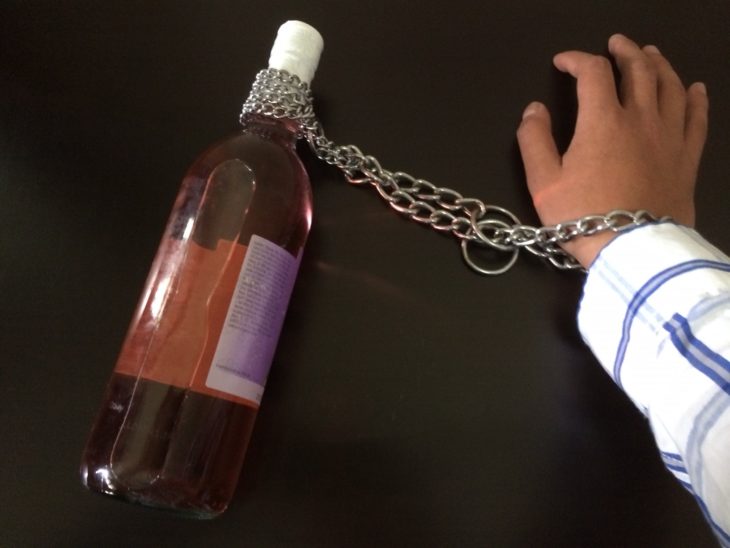Whether it’s a spouse, a child, or a sibling, if you have a friend or family member who is dealing with alcoholism, you undoubtedly want to be as supportive as possible.
Unfortunately, that’s a lot more difficult than it sounds, especially if you don’t want to lose yourself in the process.
If you’re struggling to figure out the best way to support a loved one on their journey, give the tips on this list a try.

Source: Simple Wikipedia
Contents
Get a Support System of Your Own
One of the first things a person does when they realize they have a problem they can’t fix on their own is to get help. Not only does your loved one deserve help to get them through their addiction, but you also deserve help on your unique journey too.
Join a group like Al-Anon if you have a friend or family member who is struggling with alcoholism. Not only will attending meetings make you feel less alone, but it can also help you discover strategies for dealing with the challenges of loving an alcoholic. In addition, other members can provide you with strategies for providing effective support that you may not have thought of.

Source: Pride Surveys
Separate Yourself from Their Habit
Whether your loved one is getting help for their addiction or not, the first thing you should do when you realize they have a problem is separate yourself from their habit.
Unfortunately, many people end up enabling their loved ones. It may seem on the surface that you’re helping them, when in reality, enabling an alcoholic isn’t helping them at all.
Separating yourself from their habit and refusing to enable them includes strategies like:
• Never loan them money, as it will likely fund their habit
• Don’t drink or have alcohol out when they are around
• Don’t bail them out of jail
• Don’t cover up or make excuses for their actions to other people
It also means refusing to talk to your friend or family member when they’re under the influence, no matter what the topic is. Your goal is to completely separate yourself from their habit for your peace of mind, but it’s also the best way to provide them with support.

Source: The Arbor
Lower Your Expectations
On the surface, lowering your expectations doesn’t sound like something you should do. Shouldn’t you expect more from your loved one during their recovery?
It’s their job to expect more from themselves. Instead, you should lower your expectations. It will make you a lot happier.
Your loved one is likely to face setbacks, and they may move at a slower pace than you like. They have their own path to follow. Your expectations create tension that will make them feel like you aren’t honoring their journey. Not to mention, you’ll lose a lot more sleep.
Lower your expectations and find the silver lining in every situation to provide them with support with less stress.

Source: QuitAlcohol
Work on Your Listening Skills
Everyone can benefit from working on their listening skills. It’s especially important if your friend or family member is struggling with an addiction.
You may feel like you’re listening, but are you also giving unsolicited advice? If you are, you’re probably feeling frustrated because it seems like all the advice you give goes in one ear and out the other. That’s because your loved one isn’t looking for advice—they’re looking for support.
Instead, strive to listen to what they have to say without interjecting your advice. Only offer it if they explicitly ask. You will both feel less frustrated, and you’ll find that your loved one comes to you more often when you aren’t telling them what you think they should do.

Source: Diet Doctor
Spend Time Away
It’s important to be there for your friend or family member, but it shouldn’t be at the expense of your mental health. It’s important for you to spend a little time away and look for ways to boost your happiness outside of their problem.
A few ideas include:
• Go outside for a walk
• Listen to your favorite music
• Spend time with a furry friend
• Use essential oils
• Take a vacation
Even if it means turning off your phone and not taking their calls for a few hours, you’ll be better able to support your friend or family member if you take time for yourself.
Supporting an alcoholic friend or family member can be difficult, but it isn’t impossible. With the tips on this list, you can provide the kind of support they need without compromising your mental health in the process.
